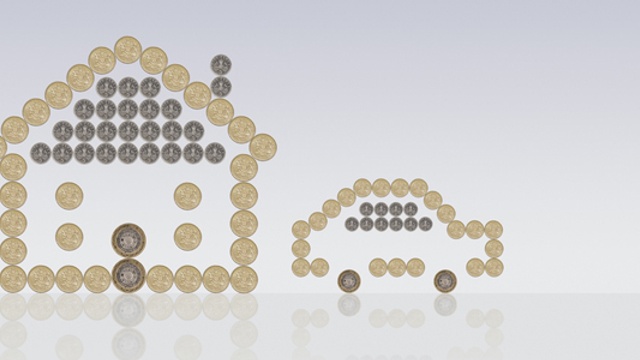Heard the term ‘secured financing’ and not sure what it is? Well wonder no more, as we explain all here.
Secured to your property
Essentially, secured financing is a form of credit that uses something you own as security. This is usually your house, but it could also be your car or another assert.
What are my secured financing options?
Mortgage
The most widely known form of secured financing is a mortgage. This is the loan you take out to pay for your home, and the loan itself is then secured against your property.
Each month, you pay back a portion of the loan along with interest, and with each payment you own a greater share of your home. However, if you stop making your payments, your lender can repossess your property.
Secured loan
Another form of secured financing is a secured loan, which is also known as a homeowner loan or second-charge mortgage.
This is a loan that is secured against your property, which then acts as added security for your lender. It means that if you were to stop making your repayments on the loan, the lender would have the right to repossess your property, sell it and claim back what you owe them.
With a secured loan, you already own your home and you’re borrowing against it. But there are other types of secured financing that work differently.
Hire purchase
For example, hire purchase is another type of secured borrowing, but in this case, the finance is secured against the item you are buying. Deals like this are most commonly used on new and used cars and allow you to drive away in the vehicle without handing over its full asking price.
In essence, you are hiring the car from the dealer (or whoever provided the finance) and making a monthly payment in return. You are free to drive it, but technically, it doesn’t belong to you until you have made your last payment.
As with a secured loan, if you stop making your payments on hire purchase the lender has the right to repossess your car. And in most cases a further condition of the agreement is that you don’t sell the car while you’re still making payments without getting the lender’s permission. If you do, it’s classed as a criminal offence so you’ll really be in hot water.
You can find out more about hire purchase agreements here.
Logbook loans
A logbook loan, or bill of sale, is another type of secured financing. However, this time rather than the lender covering the cost of your car and you paying them back each month, the lender provides you with a loan that’s secured to your car.
This is similar to a secured loan, in that you repay the loan in monthly instalments and if you miss one your lender has the right to repossess your car.
However, unlike the secured loans industry, logbook loan providers are not heavily regulated. As a result, this is a very risky form of borrowing and best avoided.
You can find out more about logbook loans here.
Asset lending
This option is similar to logbook loan lending, but, rather than your car, you might use a designer watch, valuable painting or piece of jewellery as security.
In most cases, this type of loan does not involve a credit check as the lender is using the valuable you give them as security. However, the interest attached to the loan can be very high. Plus, you only get a short period in which to repay the loan – seven months is the maximum. If you don’t repay your debt in this time, your item can be sold.
And there you have it; our guide to some of the most common forms of secured financing. Keep checking the blog for more useful guides to different forms of finance.
Disclaimer: We make every effort to ensure that content is correct at the time of publication. Please note that information published on this website does not constitute financial advice, and we aren’t responsible for the content of any external sites.








